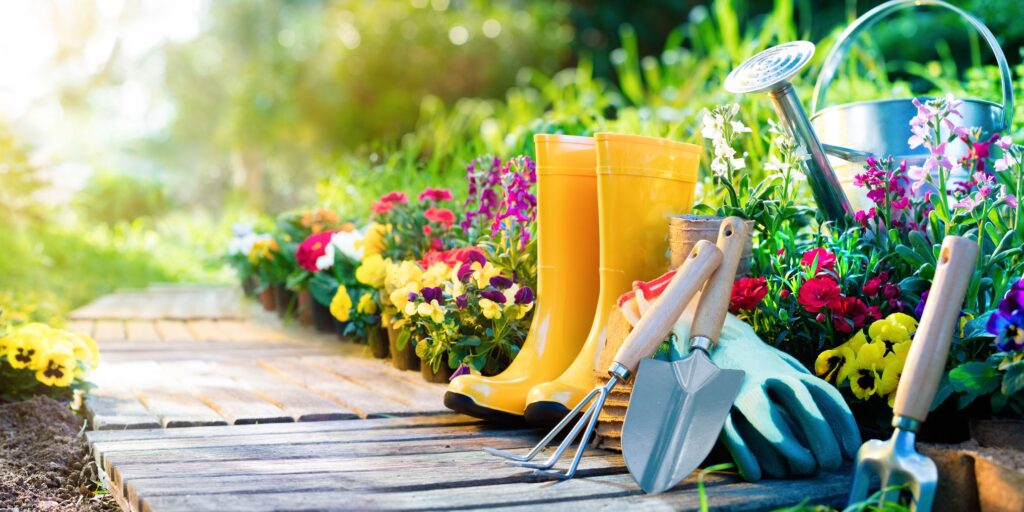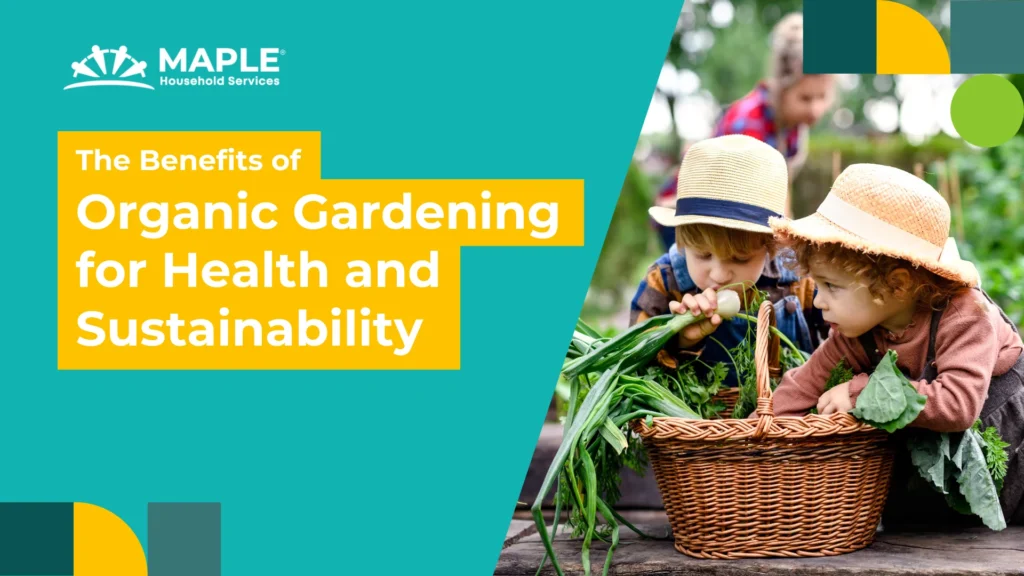Introduction
In recent years, organic gardening has gained immense popularity among health-conscious individuals and environmentally-aware gardeners. Unlike conventional gardening, organic gardening avoids synthetic chemicals, relying instead on natural methods to grow healthy and sustainable plants. Whether you’re a beginner or someone looking to switch to a more eco-friendly lifestyle, this guide will walk you through the essentials of starting your own organic garden.
What is Organic Gardening?

Organic gardening is the practice of growing plants—especially fruits, vegetables, and herbs—without using synthetic fertilizers, pesticides, or genetically modified organisms (GMOs). It focuses on soil health, biodiversity, and ecological balance. The result is fresh, nutritious produce and a garden that supports the environment rather than harming it.
Benefits of Organic Gardening

- Healthier Food: Since organic gardening avoids synthetic pesticides and fertilizers, the produce is safer and more nutritious.
- Environmental Impact: It reduces pollution, protects wildlife, and improves soil health.
- Cost-Effective: After the initial setup, maintaining an organic garden can be cheaper than buying organic produce from stores.
- Mental and Physical Well-being: Gardening is a therapeutic activity that encourages physical activity and reduces stress.
Getting Started with Organic Gardening
Starting an organic garden isn’t difficult. Here are the basic steps:
- Choose the Right Location: Look for a spot with adequate sunlight, good drainage, and access to water.
- Prepare Organic Soil: Healthy soil is the foundation of organic gardening. Use compost, aged manure, and organic matter to enrich the soil.
- Select Organic Seeds and Plants: Always choose certified organic seeds to ensure your organic gardening journey starts right.
- Use Natural Fertilizers: Compost, seaweed, worm castings, and fish emulsion are excellent for feeding your plants naturally.
- Control Pests Naturally: Employ companion planting, natural predators, and organic sprays like neem oil to manage pests.
Maintenance Tips for a Successful Organic Garden
- Mulching: Use organic mulch to retain moisture and prevent weed growth.
- Crop Rotation: This helps in maintaining soil fertility and controlling pests and diseases.
- Watering: Water early in the morning and use rainwater whenever possible.
- Observation: Regularly check your plants for signs of stress or disease.
Why Organic Gardening is the Future
As more people become aware of the environmental and health impacts of conventional agriculture, organic gardening is emerging as a sustainable and responsible alternative. By embracing this practice, you contribute to a healthier planet while enjoying the freshest food possible.
Conclusion
Organic gardening isn’t just a trend—it’s a lifestyle choice that benefits your health, your wallet, and the planet. Whether you have a small balcony or a large backyard, there’s always room to grow something organically. Start small, stay consistent, and enjoy the rewarding journey of organic gardening.
1. What is organic gardening?
Organic gardening is the practice of growing plants without synthetic chemicals, using natural methods like compost, crop rotation, and organic fertilizers.
2. How do I start organic gardening at home?
Begin by choosing organic seeds, preparing healthy soil with compost, and using natural pest control methods like neem oil and companion planting.
3. What are the benefits of organic gardening?
Organic gardening offers chemical-free produce, improves soil health, supports biodiversity, and is better for your health and the environment.
4. Can I do organic gardening in containers or small spaces?
Yes! Organic gardening can be done in containers, raised beds, or even balconies using organic soil, compost, and appropriate sunlight.
5. How do I control pests in organic gardening?
Use natural solutions like neem oil, insecticidal soap, or attract beneficial insects such as ladybugs to control pests without harmful chemicals.